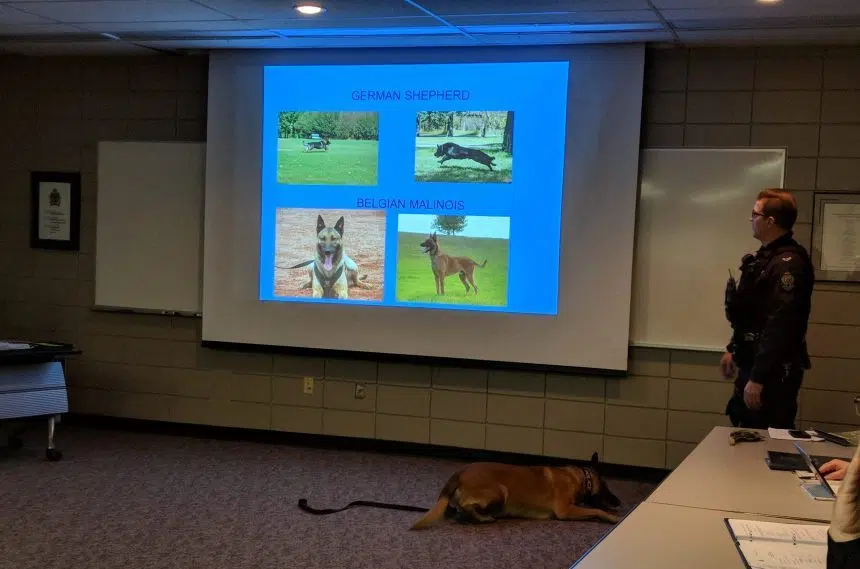The board of police commissioners got an off-leash look into a uniquely furry division of the Regina Police Service Wednesday.
The canine unit came to present, highlighting the job it does while bringing along some statistics.
The unit’s training coordinator Corporal Jody Lorence also brought Kruz, a 12-year-old Belgian Malinois, who’s a member of the unit.
That unit is generally comprised of six handler and police service dog (PSD) teams.
In 2017, the canine unit received about 3,800 calls for service. Of those, 190 canine specific arrests were made. In 24 cases, the dogs were forced to bite.
Lorence said dogs will typically use force in less than 20 per cent of the arrests the unit makes.
He said they are only deployed in serious situations.
“We’re not talking about the theft of some gum from 7/11, we’re talking about robberies, we’re talking about assaults, we’re talking about drug possession,” Lorence explained.
But while using dogs to catch criminals is a part of the job that usually gets the most attention, he said it’s not their only job.
“When we think of canines, I would like people to look past just the biting that occurs during an apprehension and I would like them to see the real work that we’re doing that is locating persons, evidence, drugs (and) explosives.”
Lorence said these dogs have incredible noses, with experts believing they have between 10 and 1000 times stronger olfactory senses than what a human would have.
That means they are well-suited for drug and explosive detection.
“Doesn’t matter what it’s been buried in, doesn’t matter what it’s been packaged in, doesn’t matter where it’s been hidden, if there’s odour present they can locate it and they’ll let us know where,” he said.
Lorence used an example of how, during training, one dog could smell a substance through a wall.
He also pointed out how the vehicles used by the canine unit are specially outfitted with heat monitors and alarms to ensure the dog’s safety during hot summer days, as Lorence said they usually get several calls a year related to the welfare of one of their animals.
The service life of a canine is between seven and nine years. As they do during their service, dogs continue to live with their handlers in retirement.











